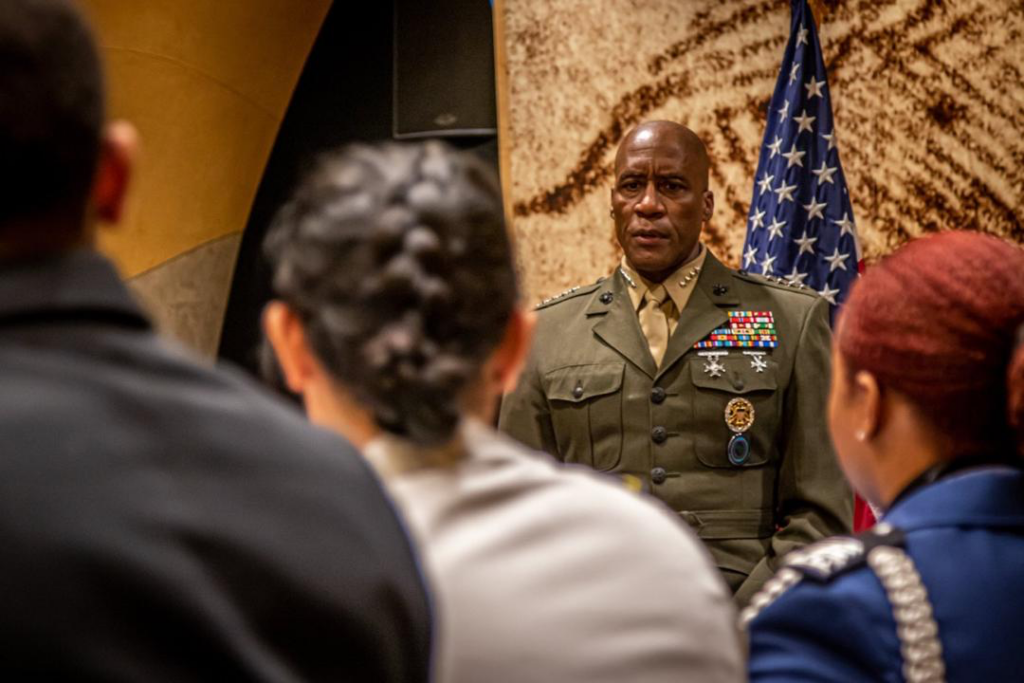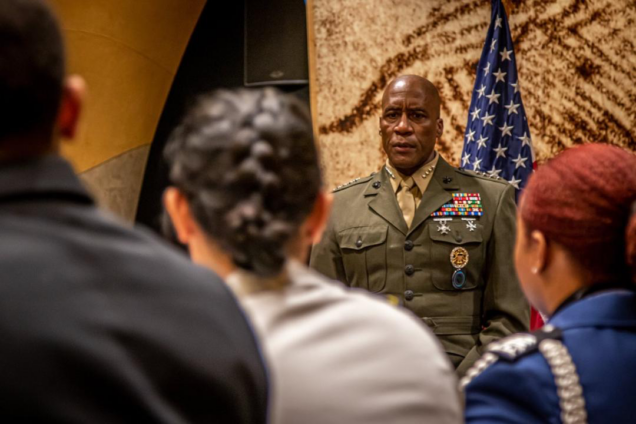Commander of the United States Africa Command (AFRICOM), Marine Corps General Michael E. Langley, confirmed to the media on Thursday that he has travelled to coastal West African countries, including Ghana, following the withdrawal of U.S. military forces from Niger.
The U.S. troops were stationed in Niger until May this year to monitor regional violent extremism.
However, after the ouster of Niger's democratically elected president Mohamed Bazoum, the military junta agreed with U.S. authorities for a complete withdrawal of American forces by September 15, 2024.
Addressing a virtual news conference after a meeting of African Chiefs of Defense Staff in Gaborone, Botswana, General Langley expressed concerns about extremist organizations thriving on instability in regions with weak governance, leaving populations ungoverned.
He emphasized the dire situation in coastal West Africa, stating, "The bottom line answer is, it is less safe."
Moving forward, the military chief explained that AFRICOM intends to engage with countries in coastal West Africa to identify their needs and provide enduring solutions.
"In most cases, it will be a whole government approach on their end as well. And so that's where our 3D construct within AFRICOM comes into play, because we have those shared objectives, shared challenges, but also the throughput of how we address an enduring solution," he said.
When asked whether Benin, Ghana, or Ivory Coast are being considered for a U.S. military base after pulling out of Niger, General Langley confirmed, "Yes, I've travelled across West Africa, across coastal West Africa.

"Those that are up against the growing threat, whether it's on their borders or already across their borders, and I listen to what they need to be successful. They understand and they tell me it's a whole government approach."
General Langley added that AFRICOM remains focused on the growing terror threat in West Africa and considers the situation crucial for both its African partners and the protection of the U.S. homeland.
He emphasised the importance of building partnerships and capacity with African allies, ensuring that AFRICOM listens, learns, and understands their needs.
"This aligns with the Global Fragility Act, which promotes a strategy of preventing conflict and promoting stability. We work with our African partners to implement this strategy effectively and serve as an enduring solution to terrorism," General Langley added.
AFRICOM plans to further engage with civil society and communities in the coming days, aiming to provide services and build institutions at the local governance level while closing the civil-military divide, which is considered effective in countering terrorism.
Latest Stories
-
Asunafo cocoa farmers rise up against illegal mining to save their farmlands
5 minutes -
EU, UNICEF, UNHCR launch €2.7m initiative for forcibly displaced persons and their host communities in Northern Ghana
12 minutes -
Medical facilities in Ahafo hail NHIA for prompt payment of claims
34 minutes -
HASAG signs maiden Collective Agreement with government
39 minutes -
5G or lose license: Government issues final ultimatum to NGIC as Q4 2025 looms
1 hour -
Police arrest suspect for killing rival who dated his ex-wife
2 hours -
Mpraeso MP pushes for affordable internet data with fixed monthly charge
2 hours -
Family seeks justice for private security officer killed at Gomoa Akoti
3 hours -
2024 electoral violence: Mahama exerts pressure on IGP to finalise probe
4 hours -
Gong Gong Awards set to make waves worldwide as AAG Executive Director Isaac Cudjoe unveils global vision
4 hours -
Miracle in Madina: Woman declared dead in Hajj returns home, stirring community shock
6 hours -
Mobus CEO apologises to Nigerian Police over Abuja land row, distances firm from protest at Nigerian High Commission in Accra
8 hours -
Experts urge institutionalisation of evidence-based health policies in Ghana
9 hours -
Government to convert National Cathedral site into National Cultural Convention Centre
9 hours -
Former Sports Minister Mustapha Ussif loses sister
10 hours

